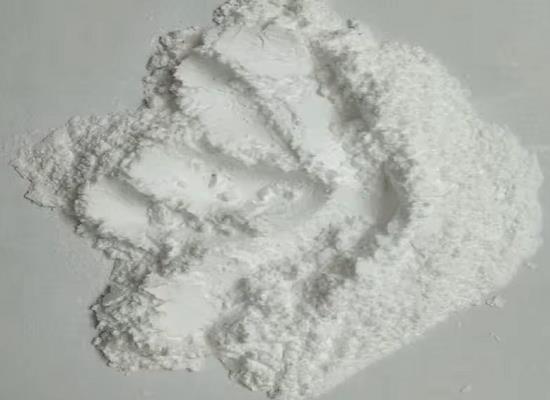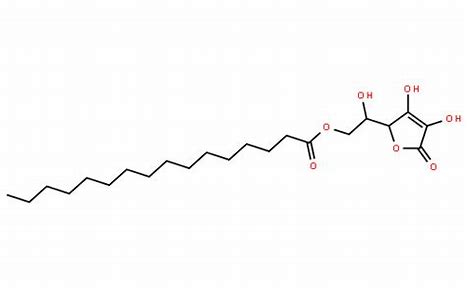Magnesium Stearate: Applications in Pharmaceutical Industry and Health Concerns
Jun 24,2024
General Description
In the pharmaceutical industry, magnesium stearate, particularly in the form of MgSt-SLN nanoparticles, enhances tablet manufacturing by improving lubrication, mechanical strength, and drug release, resulting in superior tablet quality. However, excessive intake of magnesium stearate can lead to health issues such as digestive discomfort, immune system effects, and concerns about pesticide residues. While generally considered safe, it is crucial to monitor dosage and ensure proper sourcing. Balancing its benefits in tablet production with potential health risks requires consultation with healthcare professionals for any concerns.

Figure 1. Magnesium stearate
Applications in Pharmaceutical Industry
Magnesium stearate, widely used as a lubricant in the pharmaceutical industry, plays a crucial role in enhancing the manufacturing process and the final quality of tablets. This compound, particularly in the form of magnesium stearate solid lipid nanoparticles (MgSt-SLN), has shown significant advantages in direct compression tablet formulations. Magnesium stearate functions by reducing friction between the tablet's constituents and the machinery during production. The unique property of MgSt-SLN is its nanoparticle size, which typically measures around 240 ± 5 nm with a specific surface area of 12.2 m2/g. This smaller size and increased surface area allow for better distribution within the tablet matrix, resulting in more efficient lubrication. In a recent study, tablets containing MgSt-SLN were compared to those with traditional magnesium stearate. The results demonstrated that MgSt-SLN enhanced tabletability—a measure of the tablet's ability to be compressed into a stable, solid form. Tablets produced with MgSt-SLN exhibited a 20% reduction in ejection force needed from the tablet press, indicating less stress on the equipment and lower risk of tablet capping or lamination. Moreover, magnesium stearate’s impact on mechanical properties such as tensile strength was also noted. Tablets with MgSt-SLN displayed higher tensile strength, suggesting they are less likely to break under stress, which is vital for both manufacturing and consumer handling. Additionally, these tablets showed reduced disintegration time, enhancing the release and absorption of the active pharmaceutical ingredient, in this case, acetaminophen. The dissolution studies highlighted that magnesium stearate not only maintained the integrity and effectiveness of the tablets but also improved the release profile of acetaminophen compared to tablets made with reference materials (RM). In summary, magnesium stearate, particularly in the nanoparticle form of MgSt-SLN, offers substantial improvements in the direct compression manufacturing of tablets. These enhancements include better lubrication, enhanced mechanical properties, and efficient drug release, making magnesium stearate a valuable component in the pharmaceutical field. The ongoing research and application of MgSt-SLN could lead to further advancements in tablet production, optimizing both the process and the products. 1
Health Concerns
Magnesium stearate, commonly used as an additive in medications and supplements, is generally considered safe for consumption. However, excessive intake can lead to certain health concerns. One notable effect is its potential laxative properties, which can irritate the mucus lining of the bowels, possibly resulting in diarrhea or increased bowel movements. Concerns also arise regarding its impact on immune function. Some studies suggest that high doses of magnesium stearate may weaken immune T-cell function, although further research is needed to fully understand this effect. Additionally, there are worries about pesticide residues in magnesium stearate sourced from cottonseed oil. Despite undergoing rigorous purification processes, the possibility of pesticide contamination remains a concern for some individuals, especially considering the prevalence of genetically modified cottonseed oil. Furthermore, there is ongoing debate about the influence of magnesium stearate on nutrient absorption. While some studies indicate that tablets containing magnesium stearate may take longer to dissolve, thus potentially affecting nutrient absorption, other research suggests that this delay does not significantly impact the effectiveness or potency of drugs or supplements. Another potential concern is the formation of biofilms in the digestive system due to magnesium stearate consumption. However, it's essential to note that these claims are speculative, as the composition and function of intestinal lining differ significantly from household surfaces where magnesium stearate-based soap may leave a film. Although allergic reactions to magnesium stearate are rare, individuals experiencing such symptoms should consult a healthcare professional. Overall, while magnesium stearate is generally regarded as safe, it's crucial to be aware of potential health effects and consult with a healthcare provider if any concerns arise. 2
Reference
1. Martínez-Acevedo L, Job Galindo-Pérez M, Vidal-Romero G, Del Real A, de la Luz Zambrano-Zaragoza M, Quintanar-Guerrero D. Effect of magnesium stearate solid lipid nanoparticles as a lubricant on the properties of tablets by direct compression. Eur J Pharm Biopharm. 2023; 193: 262-273.
2. Melinda RD. What Is Magnesium Stearate? WedMD. 2023.
- Related articles
- Related Qustion
- Introduction of Magnesium Stearate Jan 12, 2022
Magnesium distearate is a magnesium salt. Magnesium stearate is a white, dry, easy, sand free and smooth powder, non-toxic,
- Magnesium stearate-Physical and Chemical Properties Jan 9, 2020
Magnesium stearate is a white, non-sandy fine powder; and has a slight odor with a slippery feel when it comes in contact with the skin. Magnesium stearate is insoluble in water, ethanol or ether. It dissolves in hot water and hot ethanol.
Supplementation with pyridoxal 5'-phosphate monohydrate can synthesize neurotransmitters such as dopamine and serotonin, maintaining a healthy nervous system.....
Nov 4,2025Biochemical EngineeringIn this comprehensive review, we delve into the science behind ascorbyl palmitate, its applications in skincare and beauty staples.....
Jun 24,2024APIMagnesium stearate
557-04-0You may like
Magnesium stearate manufacturers
- Magnesium stearate
-

- 2025-12-20
- CAS:557-04-0
- Min. Order:
- Purity: 0.99
- Supply Ability:
- Magnesium Stearate
-

- $0.00 / 1kg
- 2025-12-19
- CAS:557-04-0
- Min. Order: 1kg
- Purity: 99%
- Supply Ability: 20MT
- Magnesium stearate
-

- $0.00 / 1kg
- 2025-12-19
- CAS:557-04-0
- Min. Order: 1kg
- Purity: 99.4%
- Supply Ability: 1000kg






